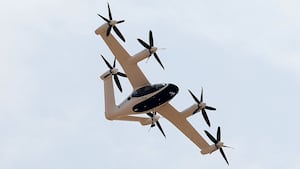Dubai Municipality on Monday announced a project to develop the Ras Al Khor Wildlife Sanctuary, at a total cost of Dh650 million.
To be completed over two phases, the first of which will be finished by the end of 2026 at a cost of Dh100 million, the project aims to boost biodiversity and establish the sanctuary as an eco-tourism destination.
It is hoped the development will place Dubai among the world’s top three tourism destinations, with designs for the sanctuary based on the needs of both residents and tourists.
Sustainability in mind
New mangroves will be planted to increase coverage by 60 per cent within the sanctuary. New irrigation channels will also be built while mangrove forests will be rehabilitated to create new habitats.
The first phase of the project will see a 144 per cent increase of water bodies within the reserve, expanding their total area to 74 hectares and increasing carbon dioxide absorption by 60 per cent. An additional 10 hectares of mudflats will also be added.
The second phase, to be implemented at a later stage, will focus on enhancing the main infrastructure and recreational services. This will support the hosting of various events and activities, while a visitor centre will also be built.
It will involve the construction of 5.6km of cycling tracks, as well as 3km of walking trails throughout the sanctuary. The project is being co-ordinated by Dubai Municipality and the Dubai Environment and Climate Change Authority.
A natural haven
Ras Al Khor Wildlife Sanctuary is one of the largest and most significant nature reserves in Dubai, covering approximately 6.4 square kilometres.
It was the first site in the UAE to be listed under the Ramsar Convention on Wetlands of International Importance in 2007 and is classified under the International Union for Conservation of Nature (IUCN) guidelines.
The sanctuary is counted among the most biodiversity-rich natural reserves in the region, hosting nearly 450 species of flora and fauna, including 47 hectares of mangroves. It welcomes around 20,000 migratory birds annually, including the iconic flamingo.
“With its unique design, the project marks a major milestone in the development and preservation of natural reserves, Marwan Ahmed bin Ghalita, director general of Dubai Municipality, said. “It reflects Dubai Municipality’s commitment to protecting biodiversity and natural habitats through innovative practices that support sustainable growth and ecological balance.”

